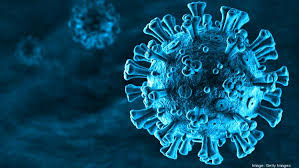365telugu.com,online news,Hyderabad,August 20,2020, : In wake of a series of tremors across the country, and Delhi NCR in particular, the role of citizens in being aware and prepared for disasters has emerged as a critical point in local conversations. The Delhi region faces earthquake risk from local fault-lines, as well as the nearby Himalayan seismic region. As the city is commemorating 300 years of a major 6.5 magnitude earthquake that struck it in July 1720, local groups are drawing lessons and gearing up to be safe from future risks. With a much higher population now, with high-rise buildings and dense settlements, the city region can be expected to see heavy damages if a similar earthquake were to strike today. In addition, Delhi is also vulnerable to flash floods, fires and other disaster risks. Citizens joining hands with government agencies to create a culture of disaster preparedness has been found to be successful globally, especially in highly disaster-prone countries like Japan, and is emerging as a campaign in Delhi too. At an event organised by Sustainable Environment and Ecological Development Society (SEEDS), families and schools were identified as leaders for community safety efforts. Dr. Daya Prakash, principal of RSKV school, emphasised the need for the city to ensure safety of its children, and also shared how Delhi’s schools have been working on identifying risks and addressing them to the extent possible locally.
Kamal Kishore, Member, National Disaster Management Authority, Government of India, stressed the need for creating a culture of preparedness, which will go a long way in aligning government efforts towards a disaster resilient India with those of the citizens. Pointing out the need for learning from the past, he said, “The city needs to memorialise its past disasters with initiatives like setting up museums, so that there is a constant reminder. Important dates like anniversaries of major disasters can be marked with high energy festivals. Citizen groups engaging with local authorities with a broader perspective is the way forward.” SEEDS, a humanitarian organisation working to build disaster resilient communities organised the event today to advocate the need to cultivate a culture of disaster preparedness. Aaj Ki Tayarri Kal Ki Suraksha: A Family Earthquake Safety Initiative campaign was designed to educate people on how earthquake safety planning by families can mitigate risks and play a vital role in saving many lives. The campaign is an offshoot of Honeywell Safe Schools programme, being conducted by SEEDS across select government schools of Delhi in partnership with Delhi Government. Citizen views, both on risks and on potential to be prepared, were shared byspeakers from Delhi and Gurgaon. Dr. Ruby Makhija, Secretary, Navjiwan Vihar Resident Welfare Association, highlighted the unrecognized potential of resident welfare associations and citizen groups in addressing the city’s concerns including disaster risks. Citing a number of successful initiatives including Covid management, she said, “A collaborative approach with recognition to local citizen groups is the way forward to seeing action on the ground”. Gurgaon resident Ruchi Marwaha, who is an urban planner by profession, spoke of scenarios that will unfold should a major disaster like and earthquake strike the Delhi region. “There will be no power, communications will be down, people will not be able to go from one place to another, and there will be panic everywhere, because we are not thinking about this risk and not preparing enough. Gurgaon has a number of great citizen initiatives such as Raahgiri and Gurgaon Moms, where such concerns can be addressed very effectively”, she said. Dr. Anshu Sharma, Co-founder of SEEDS, who was anchoring the event, noted, “Conversations on Delhi’s disaster preparedness are at an all-time high as we are marking a major earthquake anniversary, and a collective earthquake drill was also held last month. Today we are moving from the first step of understanding our risk, towards the next one on doing something about it.”

During the event, a survival essentials kit called the ‘BhaGoBag’ was unveiled. Modelled on the global concept of go-bags, that are meant to be carried while evacuating from home in an emergency, the bag contains items required to safely get out of a building hit by a disaster, and to survive for some time outdoors till help comes or one can safely re-enter the building. Showcasing the bag, Kamal Chawla, Director Design, SEEDS said that “Everyone should know enough about building structures to know which part of their house is relatively safe or unsafe, so that they can take refuge in the right spots and can evacuate with essential items when the time is right.” Along with the GoBag, a guide on Earthquake Safety during COVID-19 was also launched by K. Nanda Kumar, Regional General Manager, Safety and Productivity Solutions, Honeywell India. He spoke of how Honeywell, as a global leader on safety benchmarks in high-end domains including aerospace, believes in detailed planning for ensuring a safe future. Advocating the same for Delhi, he addressed the school children in the audience and shared the guide, highlighting the importance of keeping Covid precautions in mind while responding to any emergencies. He shared, “Safety is a universal concept and the more we talk about it, the safer we will be. It is important to educate children, the change agents of our society and inculcate a culture of safety so that it becomes a behavior. We also need to start a conversation about disaster readiness and ask questions when someone is not following safety norms.” SEEDS plans to launch continue this campaign with a number of conversations to make people aware of impending risks and to initiate ground level actions to make the city safer. Creating a culture of preparedness, and doing that through our behavior as citizens, will be the very foundation of a resilient Delhi.

